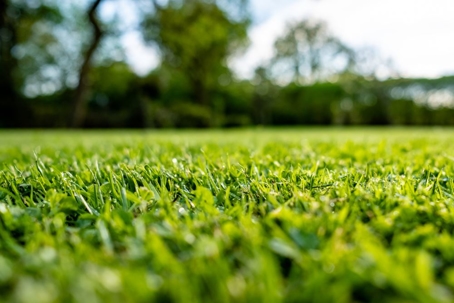Organic Fertilizer vs. Chemical Fertilizer: What You Need to Know
When it comes to choosing the right fertilizer, options abound. Each type offers unique benefits, and understanding the differences can help you make the best choice for your lawn, garden, or crops. Fertilizers play a vital role in soil health, impacting plant growth, yield, and the long-term health of the environment.
The debate over organic versus synthetic fertilizer has been ongoing among gardeners, farmers, and environmentalists, with both sides presenting strong arguments. Let’s explore the key differences, advantages, and potential drawbacks of each type to guide your fertilization choices.
Why Fertilizer Choice Matters
The quality and health of soil are critical for the success of any plant system, whether it's a home garden, commercial farm, or lawn. Over time, soil can become depleted of nutrients due to environmental factors, over-farming, or heavy plant growth. Choosing the right fertilizer not only improves plant growth and yield but can also affect the surrounding ecosystem, water quality, and soil structure.
At Green Wing Services, we strive to provide our customers with lush, thriving lawns while also protecting the local ecosystem. Our mission is to balance environmental consciousness with effective lawn care. For this reason, we often lean towards organic fertilizers, following nutrient pollution reduction practices and environmentally-friendly fertilization techniques. However, we understand that each type of fertilizer has its place, depending on specific needs and goals.
Understanding Organic (Natural) Fertilizers
Organic fertilizers are derived from natural plant and animal materials, such as compost, manure, bone meal, and seaweed. They’re minimally processed, preserving their natural form to enrich soil health gradually. Organic fertilizers nourish the soil over time, creating a more sustainable environment for plants by enhancing soil structure, promoting microorganism activity, and reducing the risk of soil degradation.
Advantages of Organic Fertilizers
- Improved Soil Health: Organic fertilizers build soil structure, improving water retention, aeration, and drainage. This enriched environment supports better root development and a sustainable ecosystem.
- Environmental Safety: With minimal processing and no synthetic additives, organic fertilizers don’t leach harmful chemicals into groundwater. They also foster healthy microorganisms, beneficial insects, and earthworm activity, all of which contribute to healthier soil.
- Long-term Nutrient Availability: Organic fertilizers release nutrients slowly, giving plants a steady nutrient supply over time. This gradual release reduces the risk of over-fertilization and helps prevent nutrient run-off into waterways.
Disadvantages of Organic Fertilizers
- Slow Results: Because organic fertilizers must break down first, they release nutrients slowly. This can be a drawback for plants that need a quick nutrient boost.
- Inconsistent Nutrient Levels: Nutrient content can vary depending on the source, making it challenging to apply precise doses.
- Application Challenges: Organic fertilizers can be bulkier and messier, requiring a bit more effort to apply evenly. Fortunately, Green Wing handles the application for you to ensure optimal results.
Understanding Synthetic (Chemical) Fertilizers
Synthetic fertilizers are formulated in laboratories and consist of chemically derived nutrients, including nitrogen, phosphorus, and potassium, often created from petroleum products and mineral sources. They provide an immediate nutrient boost and can be particularly beneficial in certain situations, such as reviving nutrient-deficient soils or accelerating growth in commercial crops. However, synthetic fertilizers may also pose some environmental concerns.
Advantages of Synthetic Fertilizers
- Quick Results: Synthetic fertilizers act fast, providing an immediate nutrient boost that can help revive struggling plants or stimulate rapid growth in demanding crops.
- Easy Application: Available in consistent, measured quantities, synthetic fertilizers allow for precise nutrient control, especially in large-scale or time-sensitive applications.
- Cost-Effective: Synthetic fertilizers tend to be less expensive and are readily available, making them a cost-effective option in the short term.
Disadvantages of Synthetic Fertilizers
- Soil Health Risks: Over time, synthetic fertilizers can strip the soil of its natural microorganisms, reducing long-term fertility and soil health.
- Risk of Overuse: Synthetic fertilizers can easily lead to nutrient overload, causing toxic salt buildup that can harm plant roots and negatively impact surrounding water sources.
- Environmental Impact: Due to rapid nutrient release, synthetic fertilizers often contribute to nutrient runoff, which can lead to algae blooms and water pollution.
Organic vs. Synthetic Fertilizer: Making the Right Choice
Choosing Organic Fertilizer: If you’re looking to improve soil health, foster a sustainable ecosystem, or are focused on long-term growth, organic fertilizers are ideal. These fertilizers enrich the soil naturally and promote healthier, stronger plants by supporting the essential microbes and organisms in the soil.
Choosing Synthetic Fertilizer: Synthetic fertilizers may be more suitable when you need quick results or a fast remedy for nutrient deficiencies. They are convenient and effective for immediate plant growth, but following application guidelines closely is important to avoid negative side effects on the soil and environment.
At Green Wing Services, we believe in a balanced approach to fertilization. We prioritize organic options for environmental health but recognize that synthetic fertilizers have their place in certain scenarios. We assess each lawn’s specific needs to choose the best fertilization plan, ensuring lush growth and eco-friendliness.
Summary of Pros and Cons
Organic Fertilizer Pros:
- Slow nutrient release for steady growth
- Improves soil structure and water retention
- Promotes a sustainable ecosystem
Organic Fertilizer Cons:
- Slower results
- May vary in nutrient content
- More challenging to apply evenly
Synthetic Fertilizer Pros:
- Fast-acting for quick results
- Consistent, easy application
- Generally lower upfront cost
Synthetic Fertilizer Cons:
- Potential to deplete soil health over time
- Higher risk of over-application
- Can contribute to environmental pollution
Hope this helps provide some clarity around why we use organic vs. synthetic fertilizers.
Your bug guy,
Jeff Daniels
P.S. We work with Keep Brevard Beautiful to help homeowners earn the Lagoon Friendly Lawns certification. We also work with the MRC’s Indian River Lagoon Green Business Program to address good environmental practices related to conservation of water, prevention of non-point source pollution, reduction and disposal of waste, and reduction in energy use to reduce the impact of climate change.
Take Lagoon Loyal’s “What’s your Footprint?” quiz and earn a coupon for your next Green Wing Services lawn treatment!

